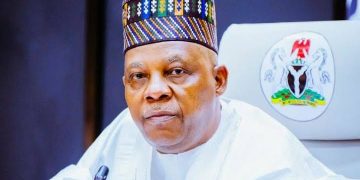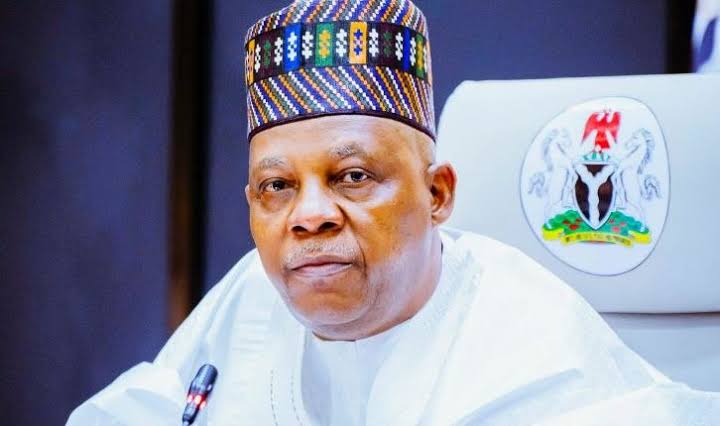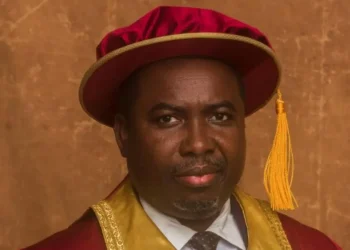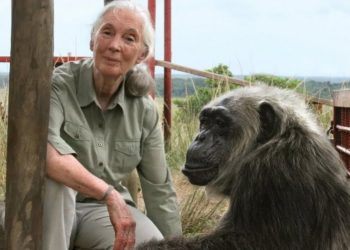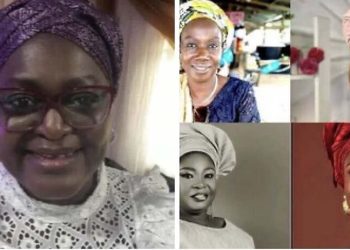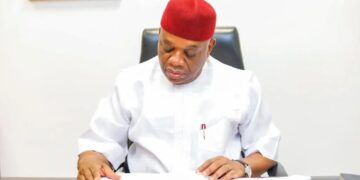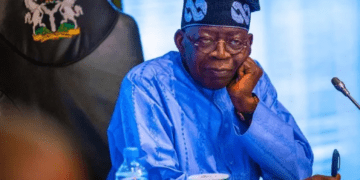Kashim Shettima, a name that resonates with resilience and strategic leadership, has carved an indelible mark on Nigeria’s political landscape, rising from the insurgency-ravaged plains of Borno State to the vice-presidential office in Abuja.
Born on September 2, 1966, in Maiduguri, Shettima’s journey began in a Kanuri family steeped in tradition, evolving through academic excellence and a stellar banking career to his governorship of Borno State from 2011 to 2019, where he confronted the Boko Haram crisis head-on, and culminating in his swearing-in as Nigeria’s 15th Vice President on May 29, 2023, alongside President Bola Ahmed Tinubu.
At 58, his ascent reflects a rare blend of intellectual rigor, administrative acumen, and political tenacity, positioning him as a pivotal figure in Nigeria’s contemporary governance narrative.
This Kashim Shettima biography traces the arc of a man whose life encapsulates the challenges and triumphs of leading in one of Africa’s most turbulent regions, offering a lens into the interplay of education, economics, and power in Nigeria’s complex democracy.
From his early days at the University of Maiduguri and Ibadan, where he honed his expertise in agricultural economics, to his rapid rise in Zenith Bank—earning the moniker “Golden Boy”—Shettima’s pre-political career laid a foundation for his governance roles.
His eight-year tenure as Borno’s governor rebuilt a state under siege, while his current vice-presidency shapes national economic policy through the National Economic Council.
Yet, his story is not without contention—allegations tied to security lapses and his swift political climb have sparked debate.
What follows is an in-depth exploration of his early years, career trajectory, key achievements, personal life, and the evolving legacy of a leader whose influence spans the North-East to the heart of Nigeria’s federal government as of April 2, 2025.
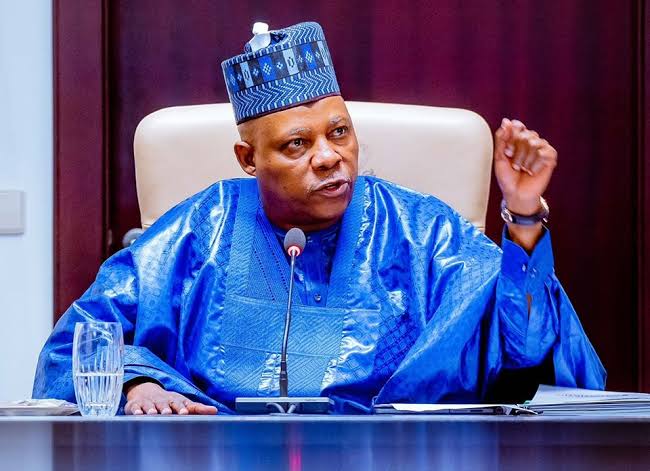
Bio-Data
| Name | Kashim Shettima Mustapha |
| Date of Birth | September 2, 1966 |
| Age | 58 years old |
| Place of Birth | Maiduguri, Borno State, Nigeria |
| Spouse | Hajiya Nana Shettima |
| Religion | Islam |
| Political Affiliation | All Progressives Congress (APC) |
| Current Position Held | Vice President of Nigeria (since May 29, 2023) |
| Source | Bsgistnews.com |
Early Life and Education
Kashim Shettima Mustapha was born on September 2, 1966, in Maiduguri, Borno State, Nigeria, into the family of Alhaji Shettima Mustafa Kuttayibe, a prominent figure in the Kanuri community.
Growing up in the Shettimari area of Maiduguri, Shettima was immersed in a region rich with cultural heritage but later challenged by conflict.
His early education began at Lamisula Primary School in Maiduguri from 1972 to 1978, followed by secondary schooling at Government Community Secondary School, Biu, from 1978 to 1980.
He completed his secondary education at Government Science Secondary School, Potiskum (now in Yobe State), earning his West African School Certificate in 1983.
Shettima’s academic prowess led him to the University of Maiduguri, where he graduated in 1989 with a Bachelor of Science (BSc) in Agricultural Economics, achieving Second Class Upper Division honors.
After fulfilling his National Youth Service Corps (NYSC) requirement at the Nigerian Agricultural Cooperative Bank in Calabar from 1989 to 1990, he pursued a Master’s degree (MSc) in Agricultural Economics at the University of Ibadan, completing it in 1991.
Career Before Politics
Shettima’s professional journey began in academia, where he served as a lecturer in the Department of Agricultural Economics at the University of Maiduguri from 1991 to 1993, sharing his expertise with students in his home state.
In 1993, he transitioned to the banking sector, joining the now-defunct Commercial Bank of Africa Limited as Head of the Accounts Unit in Ikeja, Lagos State, until 1997.
That year, he moved to African International Bank Limited as a Deputy Manager, rising to Manager by 2001.
In 2001, he returned to Maiduguri to head Zenith Bank’s main branch, quickly climbing the ranks to Senior Manager, Assistant General Manager, and Deputy General Manager/Zonal Head (North-East).
By 2007, at the age of 41, he had become a General Manager at Zenith Bank, one of the youngest to achieve this rank, earning him the nickname “Golden Boy of Zenith” among peers.
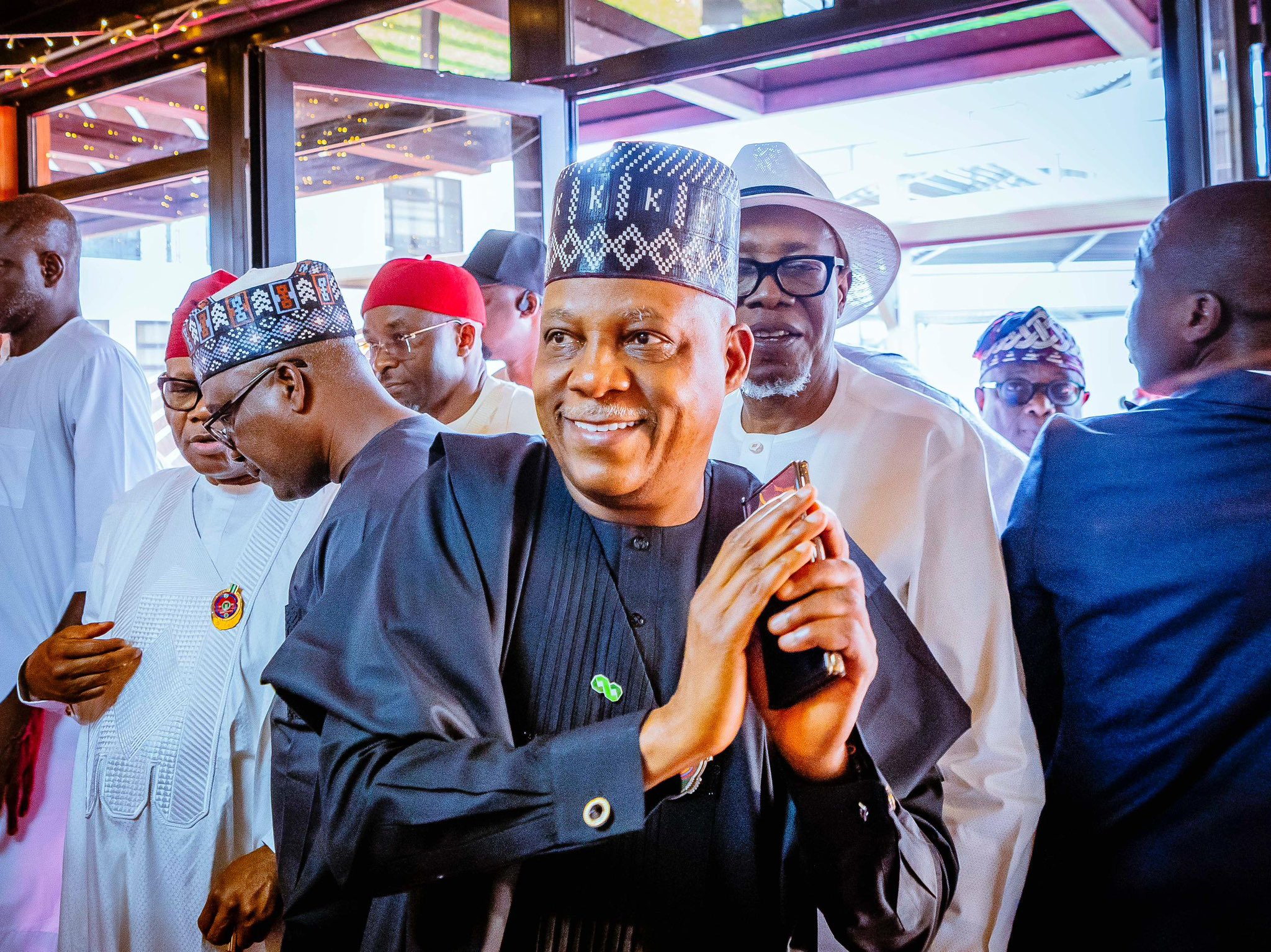
Kashim Shettima’s Political Career
Shettima’s political career began in 2007 when he resigned from Zenith Bank to join the cabinet of Borno State Governor Ali Modu Sheriff as Commissioner for Finance and Economic Development.
Over the next four years, he served in five ministries—Local Government and Chieftaincy Affairs (2008), Education (2009), Agriculture and Natural Resources (2009), and Health (2010)—gaining broad administrative experience.
His political ascent took a dramatic turn in 2011 when, following the assassination of ANPP gubernatorial candidate Modu Fannami Gubio by Boko Haram, Shettima was selected as the replacement candidate.
He won the April 26, 2011, election with 531,147 votes, defeating PDP’s Muhammed Goni, and was sworn in as Governor of Borno State on May 29, 2011, under the All Nigeria Peoples Party (ANPP), which later merged into the All Progressives Congress (APC).
Re-elected in 2015 with a wider margin, Shettima’s eight-year governorship (2011–2019) was dominated by the Boko Haram insurgency, which devastated Borno State.
He formalized the Civilian Joint Task Force (CJTF) in 2013, providing salaries, kits, and vehicles to support the military against insurgents, and spearheaded reconstruction efforts, including temporary accommodations for displaced persons.
After leaving office in 2019, he was elected Senator for Borno Central in February 2019, serving until 2023. On July 10, 2022, APC presidential candidate Bola Ahmed Tinubu announced Shettima as his running mate for the 2023 election.
Following Tinubu’s victory, confirmed by INEC on March 1, 2023, Shettima was sworn in as Nigeria’s 15th Vice President on May 29, 2023, receiving the Grand Commander of the Order of the Niger (GCON).
Shettima’s Major Achievements
As Governor, Shettima tackled Borno’s crises head-on, building over 50 mega schools (24 completed by 2019) to address the destruction of 900+ schools by Boko Haram, alongside free education, uniforms, books, and planned meal programs for 10,000 students.
His administration’s support for the CJTF and military logistics bolstered security efforts, while his leadership earned him accolades like Governor of the Year (2014, Leadership; 2015, NUJ; 2016, Tell Magazine) and the Zik Prize for Leadership (2017).
As Vice President, he oversees the National Economic Council, influencing economic policy under Tinubu’s administration, and has advocated for northern unity, notably as Chairman of the Northern States Governors’ Forum during his governorship.
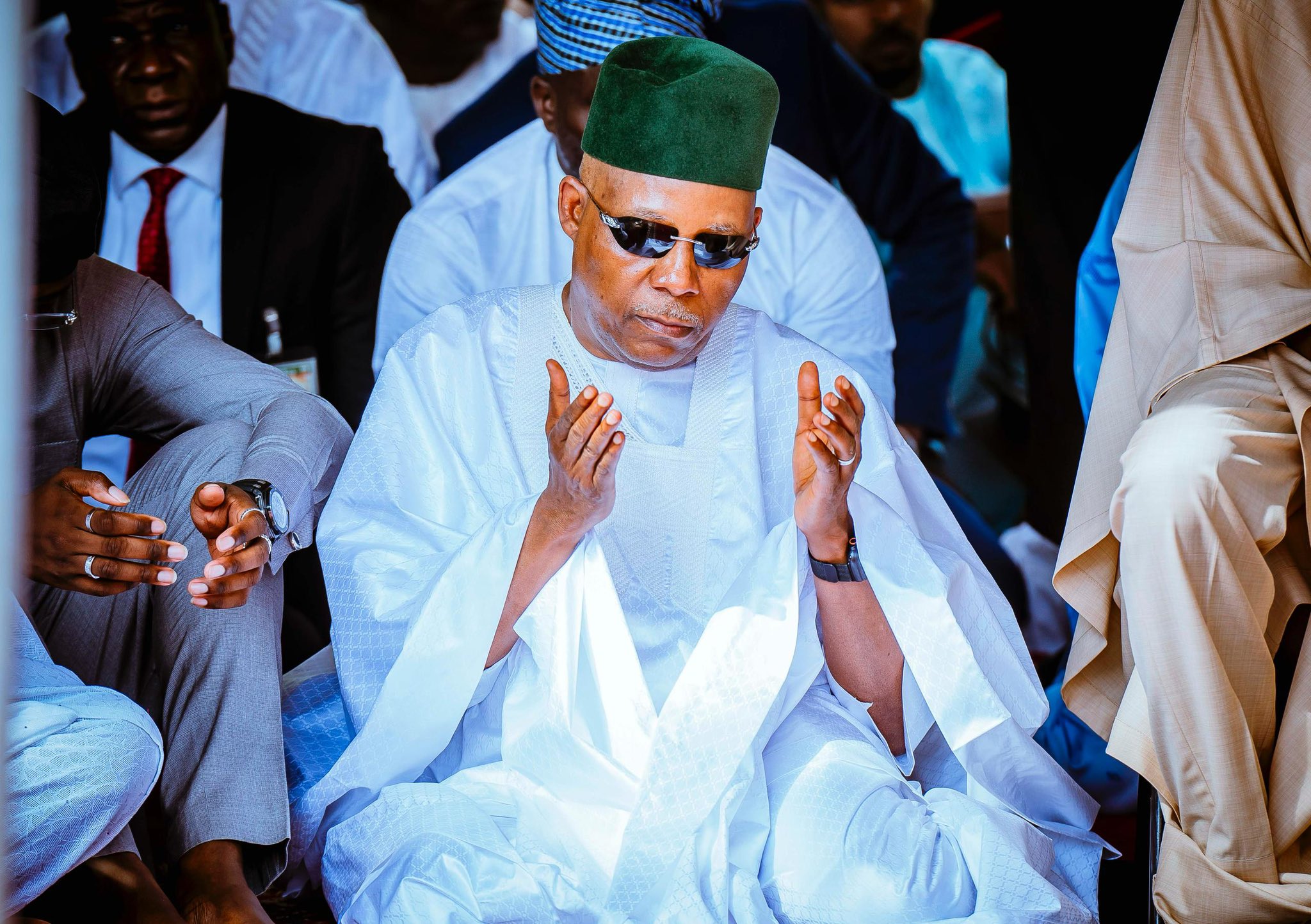
Personal Life of Kashim Shettima
Kashim Shettima is married to Hajiya Nana Shettima, whom he wed in 1998, and they have three children—two daughters, Fatima and Amira, and a son, Amir.
A devout Muslim of the Kanuri tribe, Shettima is known for his hospitality across ethnic and religious lines, maintaining diverse aides during his governorship, including Christians and Muslims from various Nigerian regions.
His articulate nature and fluency in English and Hausa have earned him praise locally and internationally.
Legacy and Impact
As of April 2, 2025, Kashim Shettima’s legacy is a blend of resilience and controversy.
His governorship is lauded for rebuilding Borno’s education and security infrastructure amid insurgency, yet criticized for the Chibok schoolgirls’ abduction in 2014, with some pointing to ignored warnings.
His rapid rise—at 45, a governor; at 57, Vice President—marks one of Nigeria’s fastest political ascents.
Allegations linking him to Boko Haram’s early growth have been debunked by allies like Senator Shehu Sani, emphasizing his efforts against the group.
At 58, Shettima remains a key figure in Tinubu’s administration, balancing northern interests with national economic goals, his career a testament to navigating adversity with strategic vision in Nigeria’s complex political landscape.
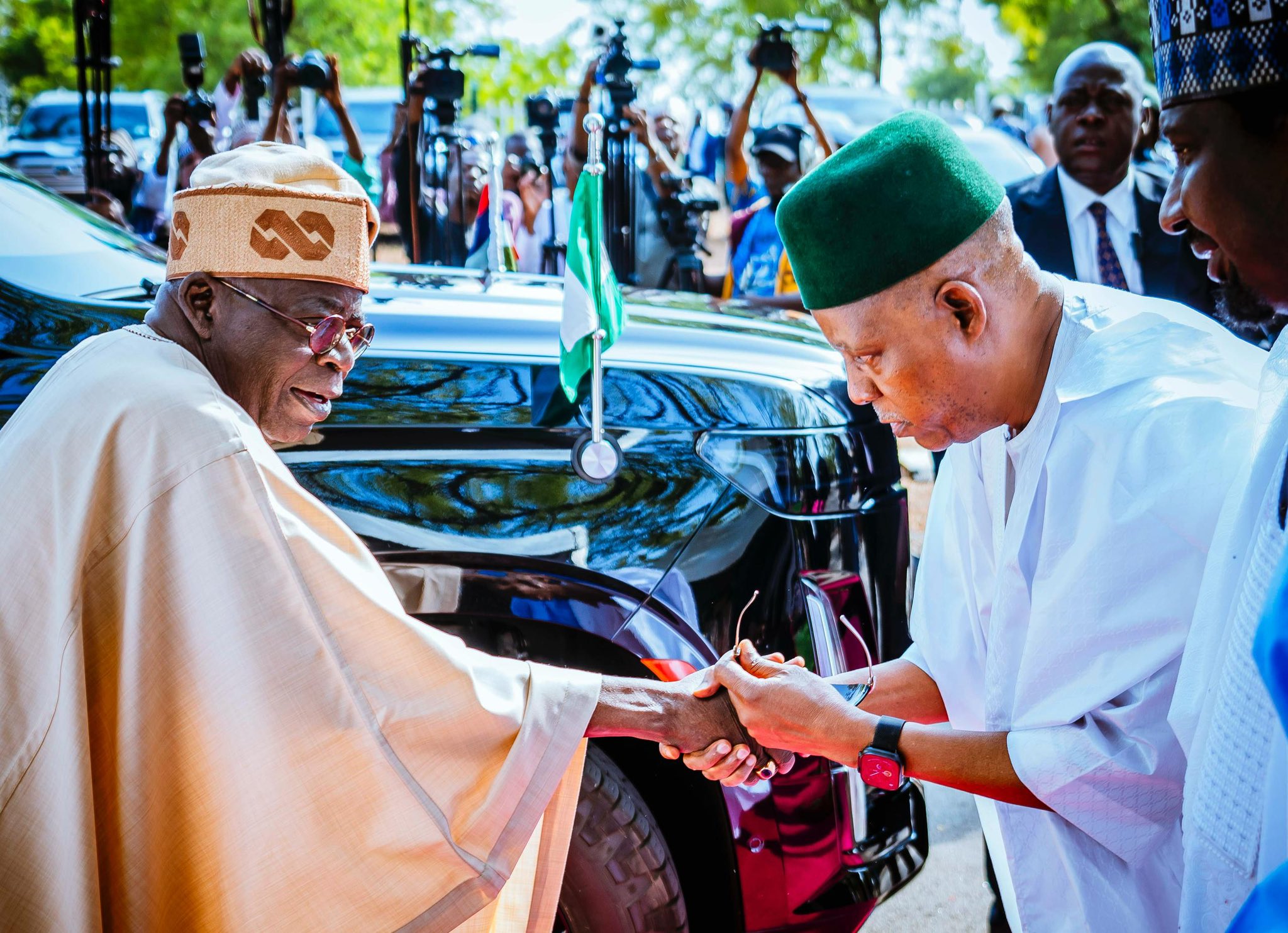
Conclusion
Kashim Shettima’s journey through Nigeria’s educational, professional, and political arenas stands as a compelling narrative of perseverance, strategic vision, and the complex interplay of leadership in a nation marked by both potential and peril.
Born on September 2, 1966, in Maiduguri, Borno State, Shettima rose from the academic halls of the University of Maiduguri and the banking corridors of Zenith Bank to govern Borno State from 2011 to 2019, steering it through the harrowing Boko Haram insurgency, before ascending to the vice-presidency of Nigeria on May 29, 2023, as the 15th holder of that office under President Bola Ahmed Tinubu.
At 58, his career—spanning lecturer, banker, governor, senator, and now Vice President—reflects an extraordinary trajectory, one forged in the crucible of personal ambition and regional turmoil, positioning him as a linchpin in Nigeria’s governance structure as of April 2, 2025.
Shettima’s legacy is a tapestry of notable triumphs interwoven with persistent challenges.
His governorship rebuilt Borno’s educational and security frameworks, with over 50 mega schools and the Civilian Joint Task Force (CJTF) as enduring testaments to his resolve, earning him multiple Governor of the Year awards and the prestigious Zik Prize for Leadership in 2017.
As Vice President, his oversight of the National Economic Council and advocacy for northern cohesion amplify his influence on national policy, balancing regional interests with Tinubu’s economic agenda.
Yet, his tenure is not without its shadows—the 2014 Chibok schoolgirls’ abduction remains a haunting critique of his security oversight, and early, debunked allegations of ties to Boko Haram’s rise linger in political discourse, countered by his allies’ emphasis on his anti-insurgency efforts.
These complexities underscore a leader who has navigated Nigeria’s fractious landscape with both boldness and scrutiny.
On a personal level, Shettima’s life—married to Hajiya Nana since 1998, father to three, and a devout Kanuri Muslim—offers a grounding counterpoint to his public stature, revealing a man whose hospitality and articulate voice bridge ethnic and religious divides.
His rapid ascent—at 45, a governor; at 57, Vice President—marks one of Nigeria’s swiftest political climbs, a testament to his adaptability and the trust placed in him by Tinubu and the APC.
As of April 2, 2025, Kashim Shettima stands at a pivotal juncture, his vice-presidency a platform to shape Nigeria’s economic and security future, while his Borno legacy endures as a beacon of resilience amid adversity.
Whether history will herald him as a transformative statesman or weigh his achievements against unresolved crises remains an open chapter, but his impact—from Maiduguri’s rebuilt schools to Abuja’s policymaking corridors—cements a legacy of leadership that continues to evolve in Nigeria’s dynamic democratic tapestry.
Frequently Asked Questions on Vice President Kashim Shettima
1. Who is Kashim Shettima?
Kashim Shettima Mustapha is a Nigerian politician, former banker, and the current Vice President of Nigeria since May 29, 2023, previously serving as Governor of Borno State (2011–2019) and Senator for Borno Central (2019–2023).
2. When and where was Kashim Shettima born?
He was born on September 2, 1966, in Maiduguri, Borno State, Nigeria.
3. What is Vice President Kashim Shettima’s age in 2025?
As of April 2, 2025, he is 58 years old.
4. What is Kashim Shettima’s ethnic background?
He is of Kanuri descent, a prominent ethnic group in Nigeria’s North-East region.
5. What is Kashim Shettima’s educational background?
He holds a BSc in Agricultural Economics (1989) from the University of Maiduguri and an MSc in Agricultural Economics (1991) from the University of Ibadan.
6. What religion does Kashim Shettima practice?
He is a devout Muslim, reflecting his Kanuri heritage and personal faith.
7. What did Kashim Shettima do before entering politics?
He lectured at the University of Maiduguri (1991–1993) and worked in banking, rising to General Manager at Zenith Bank by 2007, earning the nickname “Golden Boy of Zenith.”
8. How long was Kashim Shettima a banker?
He spent 14 years in banking, from 1993 to 2007, across Commercial Bank of Africa, African International Bank, and Zenith Bank.
9. When did Kashim Shettima become Governor of Borno State?
He was elected Governor on April 26, 2011, and sworn in on May 29, 2011, serving until May 29, 2019.
10. What political party does Kashim Shettima belong to?
He is a member of the All Progressives Congress (APC), having started with the All Nigeria Peoples Party (ANPP) before its 2013 merger into APC.
11. When did Kashim Shettima become Vice President of Nigeria?
He was sworn in as Vice President on May 29, 2023, after being selected as Bola Tinubu’s running mate in the 2023 election.
12. How did Kashim Shettima become Vice President?
Tinubu announced him as his running mate on July 10, 2022, and they won the presidential election on February 25, 2023, confirmed by INEC on March 1, 2023.
13. What is Kashim Shettima’s current position in the Nigerian government?
As of April 2, 2025, he is the Vice President of Nigeria, overseeing the National Economic Council and assisting President Tinubu.
14. What roles did Kashim Shettima hold as Governor?
He served in five Borno State ministries (2007–2011) before becoming Governor, where he tackled the Boko Haram insurgency and chaired the Northern States Governors’ Forum.
15. What are Kashim Shettima’s key achievements as Governor?
He built over 50 mega schools, supported the Civilian Joint Task Force (CJTF) against Boko Haram, and initiated reconstruction for displaced persons.
16. What awards has Vice President Kashim Shettima received?
He won Governor of the Year (2014, Leadership; 2015, NUJ; 2016, Tell Magazine) and the Zik Prize for Leadership (2017) for his governance during the insurgency.
17. What role does Kashim Shettima play as Vice President?
He chairs the National Economic Council, influencing economic policy, and advocates for northern unity under Tinubu’s administration.
18. What happened during the Chibok schoolgirls’ abduction under Kashim Shettima?
On April 14, 2014, Boko Haram abducted 276 girls from Chibok; critics say he ignored warnings, though he claims he alerted the military, who failed to act.
19. Has Kashim Shettima been linked to Boko Haram?
Early allegations suggested ties to the group’s rise, but allies like Senator Shehu Sani debunked this, citing his anti-insurgency efforts; no evidence supports the claims.
20. Who is Kashim Shettima married to?
He is married to Hajiya Nana Shettima, whom he wed in 1998.
21. Does Kashim Shettima have children?
Yes, he has three children with Nana: daughters Fatima and Amira, and son Amir.
22. What languages does Kashim Shettima speak?
He is fluent in English and Hausa, enhancing his communication across Nigeria’s diverse regions.
23. What is Kashim Shettima’s legacy as of 2025?
At 58, his legacy blends rebuilding Borno’s education and security with his vice-presidential role in economic policy, though tempered by the Chibok controversy, marking him as a resilient yet debated leader.
